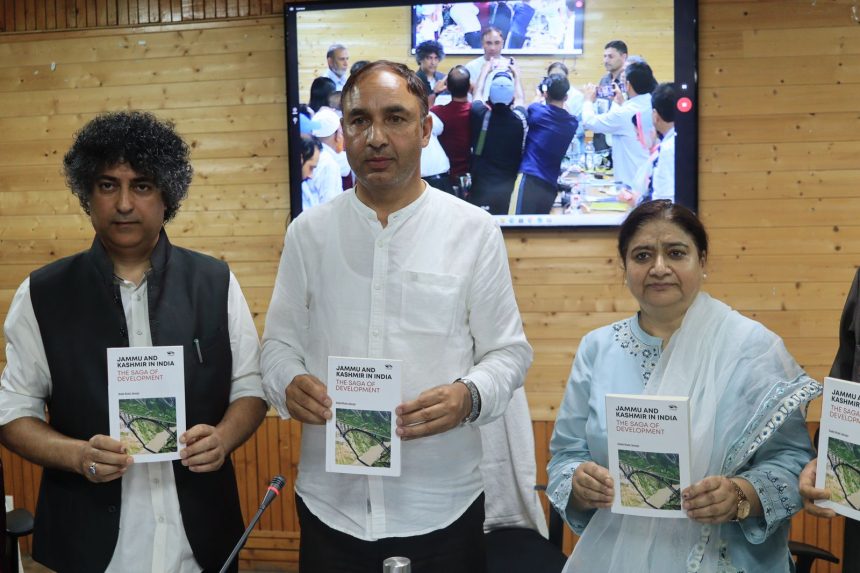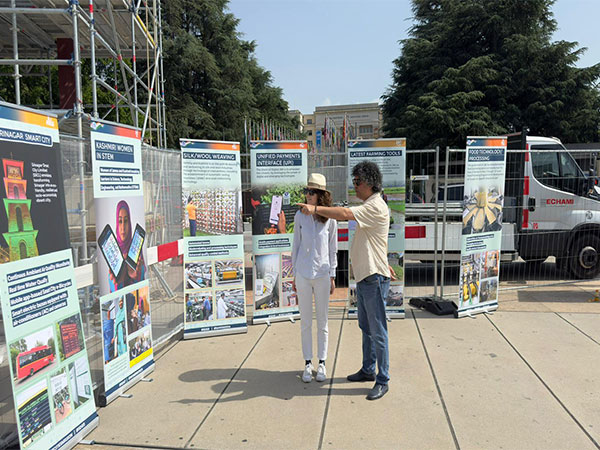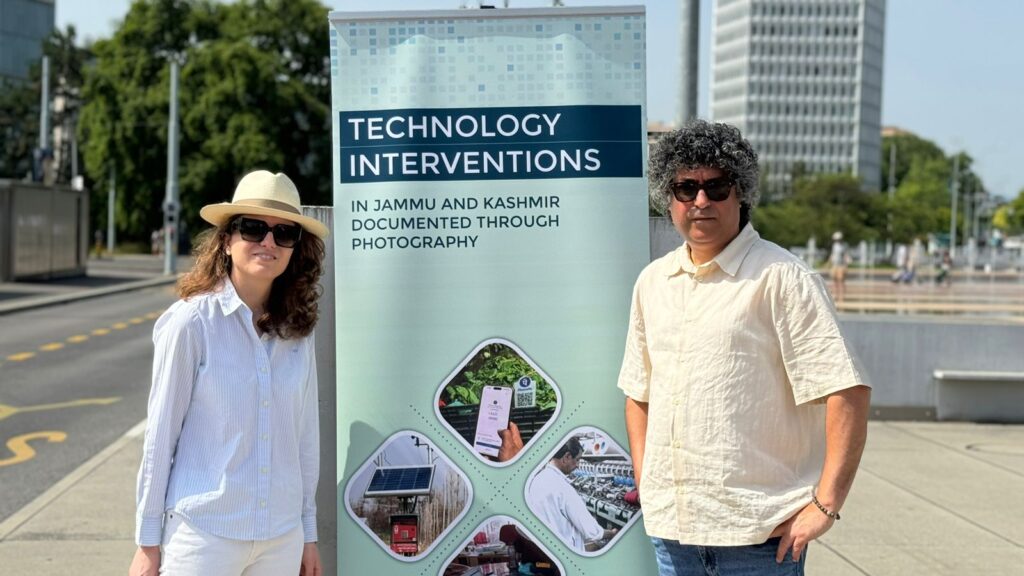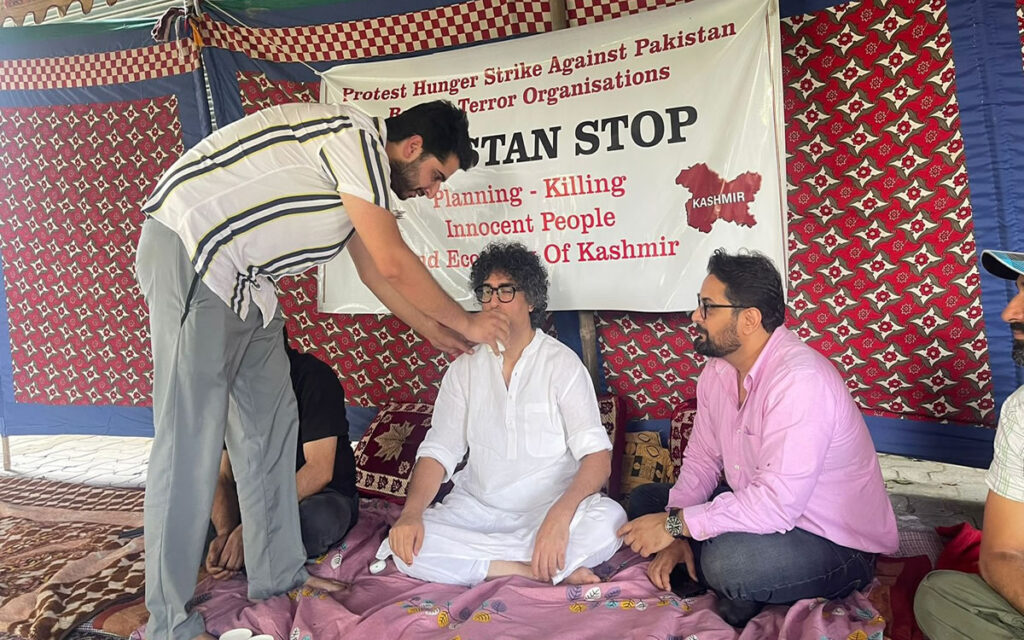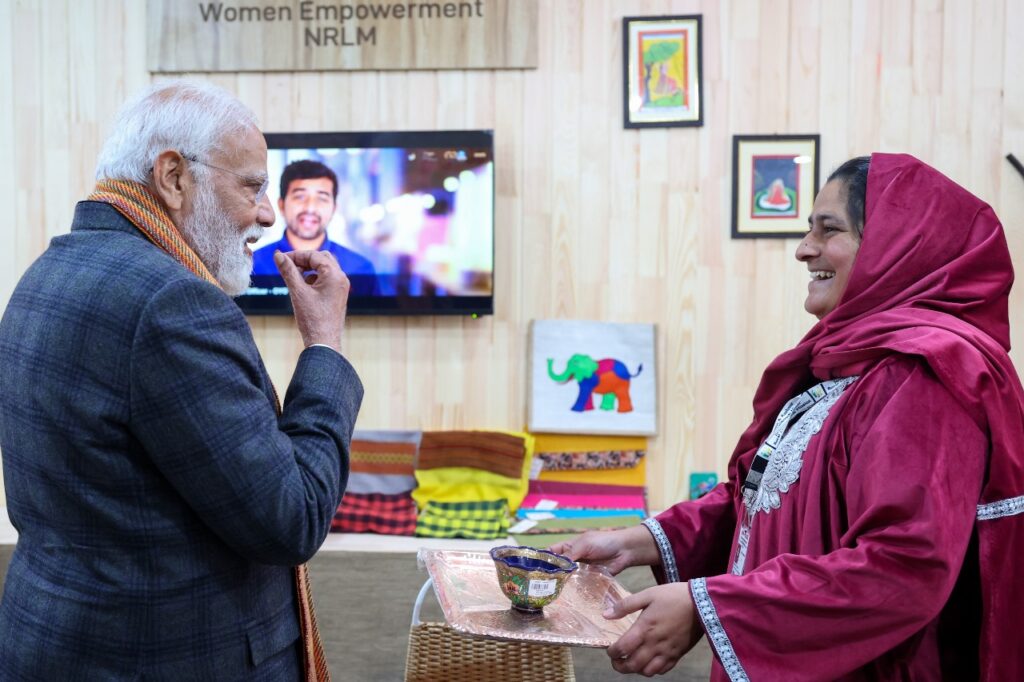Khalid Jehangir’s book released
He also provided an overview of the book while highlighting its holistic perspective and its potential to support future research.
Srinagar, July 4: The Vice-Chancellor (VC) Kashmir University and VC SKUAST-K on Thursday jointly released a book titled “Jammu and Kashmir in India: The Saga of Development” authored by Dr Sheikh Khalid Jehangir.
The book release function was organised by the International Centre for Peace Studies, New Delhi at VC secretariat of Sheri Kashmir University of Agriculture, Science and Technology (SKUAST) – Kashmir.
Speaking about his book, the author, Dr Sheikh Khalid Jehangir stated that the idea to write this book was conceived last year days after his previous book titled “Two Kashmirs” was released by J&K Lieutenant Governor (LG) Manoj Sinha. Dr Khalid Jehangir has till now authored four books.
“After the previous book release, I thought to focus on writing a book on how J&K has fared as a state in the Indian Union and how the gracious funds from New Delhi have developed the state in the economic map,” he said.
He also provided an overview of the book while highlighting its holistic perspective and its potential to support future research.
“The book amalgamates historical data with contemporary issues and offers a thorough narrative on the region’s developmental journey,” he said.
He said that his books speak about the decline in the political situation and increase in the Pakistan sponsored terrorism in J&K since 1990, a general perception has been created through Pakistan’s hyper propaganda that J&K has been a victim of governance deficit and massive corruption, which has led to overall development deficit and decline in human capital in J&K.
“India’s resistive action to counter terrorism and provide peace and security has been wrongly portrayed that India’s hand has been forced through clever manipulation of the political dynamics,” he said.
His book highlights the consistent cross-border campaign to show India in a bad light among the people of Kashmir and to tarnish India’s image at home and abroad.
Speaking at the occasion, VC SKUAST-Kashmir, Prof Nazir Ahmad Ganai said that the book addresses a significant research gap in Kashmiri literature and meticulously detailing the allocation of funds by various political parties to different districts in Kashmir.
“This work fills a crucial void in understanding the developmental history of this region,” VC SKUAST-K said.
VC Kashmir University Prof Nilofar Khan in her address at the occasion praised the author for coming up with a book which has a unique value for its data-driven approach and comprehensive analysis spanning from 1947 to 2020.
“It is an invaluable resource for future academic endeavors and it is important for the researchers focusing on development of Kashmir,” she said.
Senior Research Fellow Smriti S Patnaik in her address commended the book for its extensive data saying that it highlights the paradox of substantial central funds alongside limited development in Kashmir.
“The book meticulously documents this incongruity and provides a crucial understanding of the developmental dynamics of the region,” she said.
Social Activist and an Academic Shehla Rashid while referring to the contents of the book, said that everybody benefits from the Government of India, whether they like it or not.
“This book has addressed critical questions about the visibility of development despite central funding. The book has the ability to provoke thought and encourage deeper investigation into the region’s developmental policies,” she said. Dean of SKUAST Prof R. A. Shahardar, Director of Extension Dr. Dil Mohammad Makdoomi and Dean of the Faculty of Horticulture Prof. S.A. Wani were also present at the occasion.
Article Source: Khalid Jehangir’s book released – greaterkashmir
Khalid Jehangir’s book released Read More »

